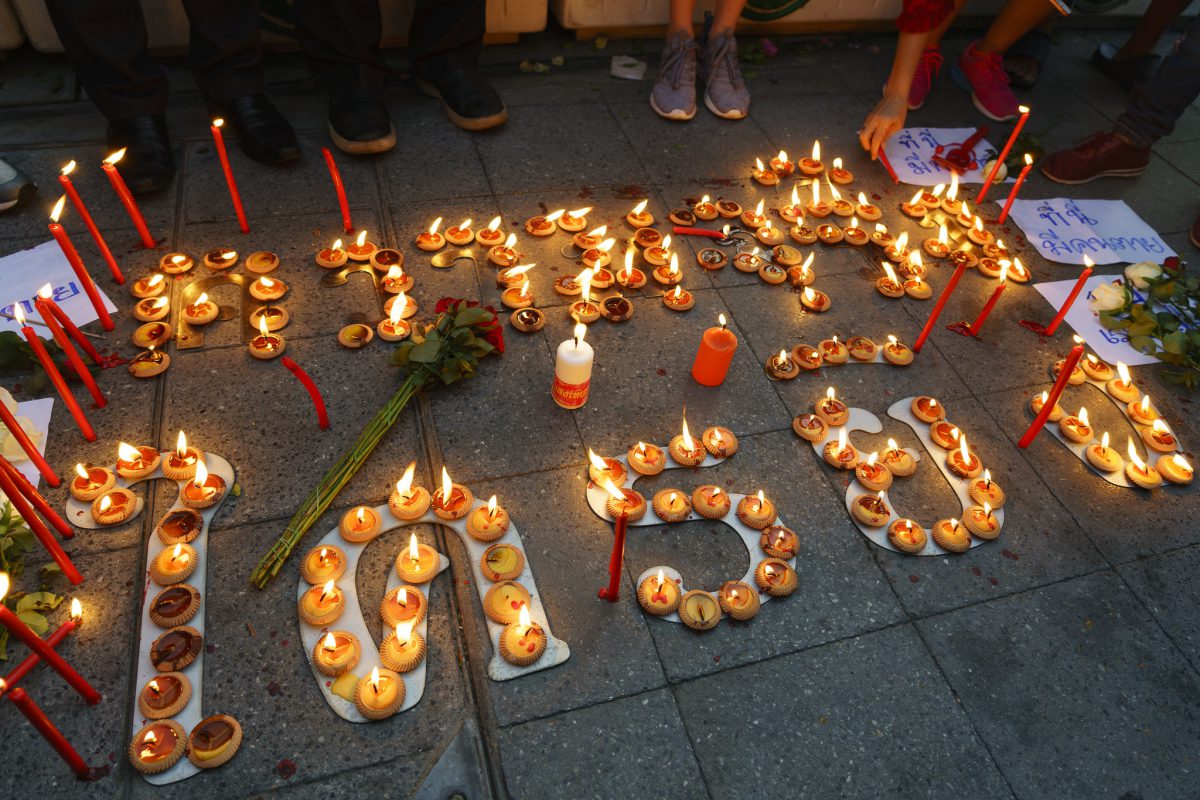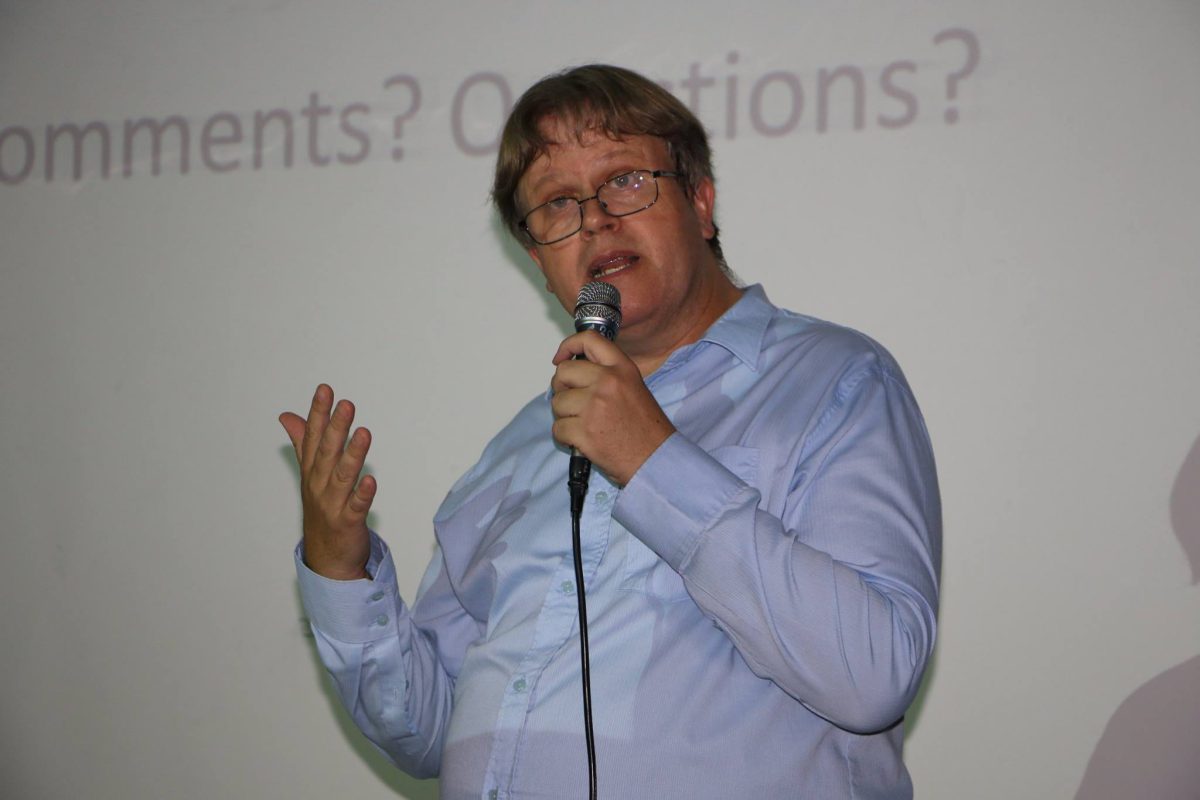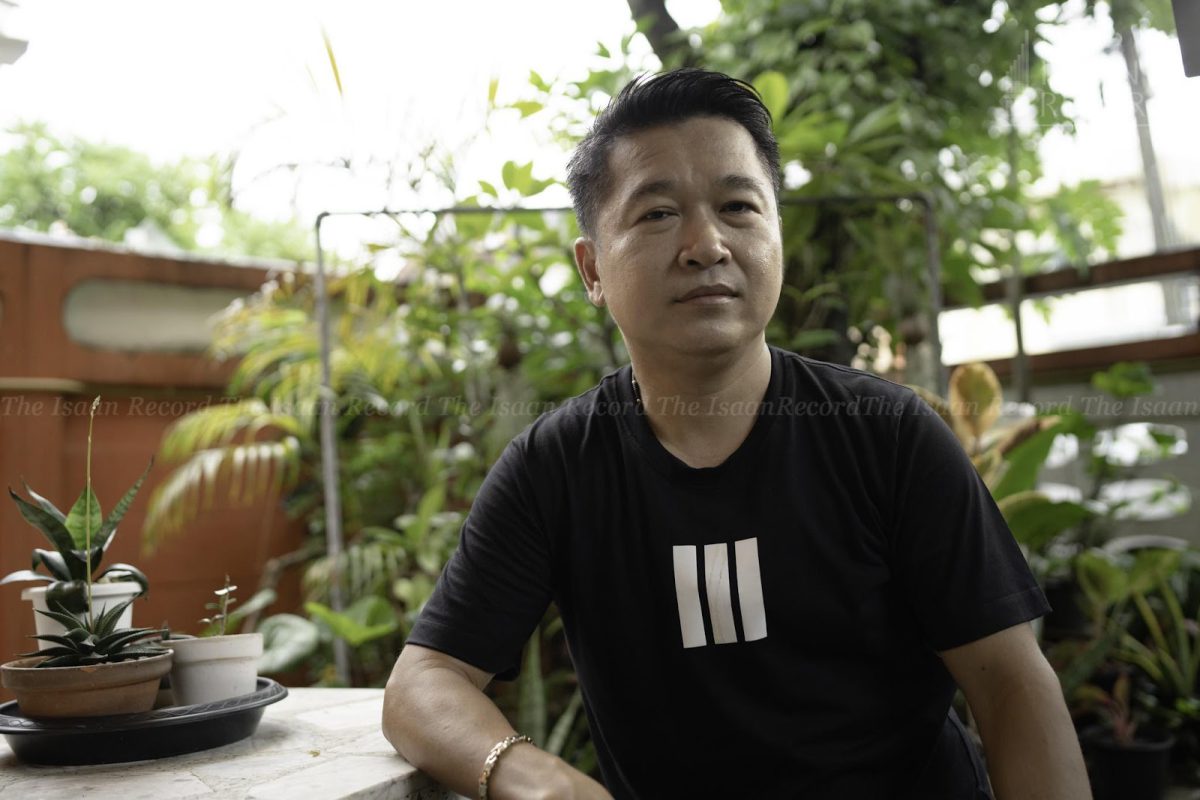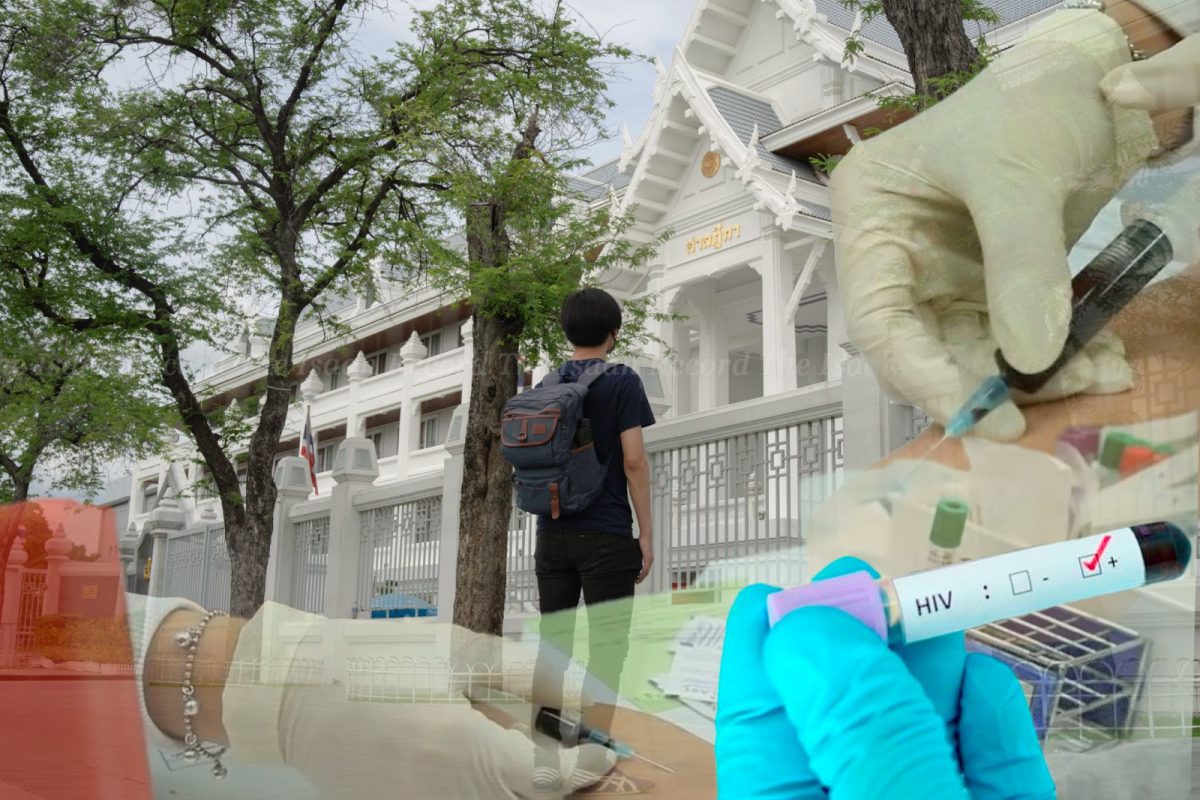“The Bangkok Tragedy” refers to the government-backed massacre of members of the red shirt movement, when a military crackdown on protesters from May 10 to May 19, 2010, resulted in at least 94 deaths.
Santhana Suppasri, then 32, was on her way home from her workplace near Bangkok’s Ratchaprasong Intersection, a busy commercial district that had been occupied for weeks by protesters. Many of them, like her family, came from upcountry provinces. On that day of May 14, 2010, it was a zone where soldiers were authorized to fire real bullets. Though Santhana had nothing to do with the massive anti-government protest, she never made it home. Instead, she became one of those killed by government forces when a bullet sliced through her aorta, according to a later autopsy.
It has been 13 years. The killers remain at large, leaving deep wounds and traumas for the families of their victims. One is Santhana’s mother, who had to travel from the northeast to the capital city of Bangkok to pick up her daughter’s lifeless body.
Thirteen years after her daughter’s death, on the occasion of Mother’s Day, we spoke to Wilaiwan Sup-sri, who is now 62 and living in Amphoe Phen, Udon Thani Province.
Could you explain your relationship with your daughter?
I have two children. The one who passed away, Santhana Suppasri, or Kai, was the oldest. We were very close. She was born and raised in Udon Thani. When the incident happened, she was 32 years old. She was an interpreter at a Japanese company in Bangkok. She was friendly and outgoing as a kid. She had many friends. Her role model was singer Jintara Poonlarp. She loved singing, and her voice was beautiful. She had joined singing competitions since junior school.
Her father loved music. He saw that Kai loved singing, so he brought a karaoke box home. We would sing together in our free time. But when she turned 23, she went to work abroad to support her family, first to Taiwan and then Japan. When she returned, the company asked her to be a Japanese interpreter. Her office was in the Phaya Thai neighborhood. At the time, Kai was the head of the household.
How do you feel after you knew she passed away?
Phyathai Hospital called me to pick up her dead body, but they didn’t tell me what happened. I was shocked. I didn’t know what to do. I watched the news on TV, and I was worried, but I didn’t think the victim would be our daughter because Kai didn’t take part in the protest. She was just working near the protest site.
Kai was going back home from work with her boyfriend. They did not allow people to go outside (because of a curfew), but she was only going back home from work. When she faced soldiers, they pointed guns at her. At that moment, there was a driver who said that Kai tried to hide but could not make it to safety. Kai was unable to escape, and she was shot. The bullet went through her neck. Kai became a victim. The soldier shot her without hesitation. They intended to kill. Then the soldiers took her body. Her boyfriend then called family members and followed them to the hospital.
If we didn’t follow them, they might toss her body somewhere. The hospital called in the evening. The curfew was announced on TV. I wanted to go (to the hospital) but I couldn’t. I cried all night like crazy. I couldn’t sleep.
“I was still crying on a flight to Bangkok the next morning. The hospital allowed me to see the body alone. There were many corpses lying on the floor. They said the number of victims was around 90, which isn’t true. I was walking around looking for my daughter. My heart was broken. I never experienced such a thing. Kai’s father almost died of a broken heart. He fell sick soon after he got back home. He locked himself in the house for months. The pain was too much to bear. I was holding her photo crying. I cannot explain how much the pain was, but it will never fade.” Wilaiwan stopped, and cried, unable to continue. “I can’t. I do not want to talk about it.”
Has anyone taken responsibility for what happened?
When it happened, no one explained or took responsibility for anything. There were just journalists. Then, the family of the victims started protesting, so I joined them. I walked from Udon Thani to Bangkok. Each time it was far and difficult, but I had to go to call for justice, to ask for an explanation about what happened to my daughter, but justice wasn’t served. There was no explanation whatsoever for a very long time. It was a very long time until they could give us an explanation.
How did the government help? What did the autopsy say?
Prime Minister Yingluck (Shinawatra) gave us about 7.5 million baht. Deducting this and that, it was around 7 million in total. They said they would take care of us forever, but after they gave us money, they were gone. I told them this amount of money couldn’t replace my daughter. If it didn’t happen we would still be a family. Would it be OK if I returned the money and they killed the one in charge of that mass killing? The autopsy couldn’t identify who was the killer, so no one took responsibility although we know the soldiers did it. The autopsy could only identify the cause of death, which was bullet cutting through the aorta.
What is your opinion on security forces firing real bullets at protesters?
The government overdid it. They killed people without compromising. They killed people who didn’t even take part in political protests. It wasn’t in the area where a lot of people were shot. My daughter was going home. They intended to kill them. They besieged and killed people.
When Kai was alive, did she tell you her dreams?
We didn’t talk much about our dreams. We would just talk about our daily lives, but (I would tell her that) she was our everything. I remembered her telling me that even though we were not a rich family, she would do everything to make mom and dad happy, but when her life was just starting to take off, this happened. If she was still alive, we could be seeing her in singing competitions on TV. She might actually be famous because her voice was really beautiful. I miss her.
If you could talk to someone in charge of the shooting, what would you say?
This has always been in my chest. I would ask where is justice? What were we in the eyes of people in power? Why did they kill people? People who were killed were grassroots people. The remedy was not enough. You can’t simply substitute 7 million baht for a human life. It cannot replace our daughter. Never.





